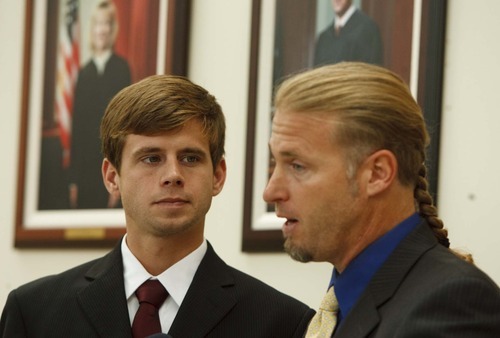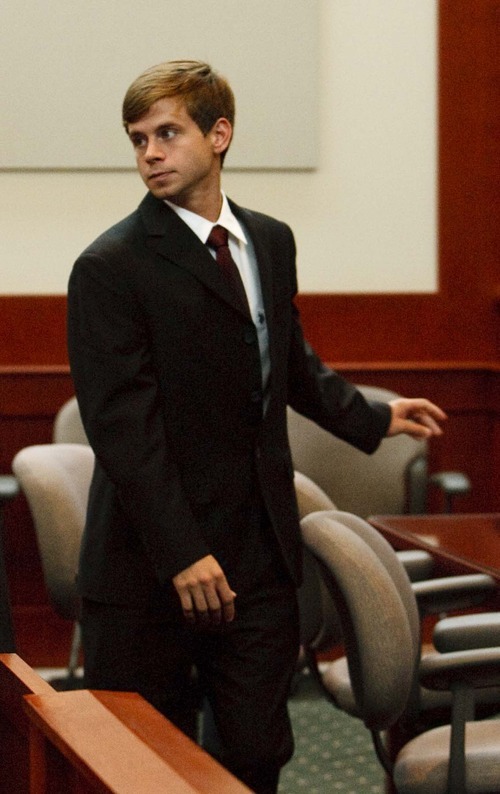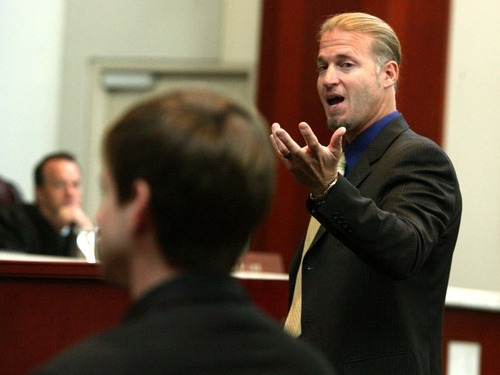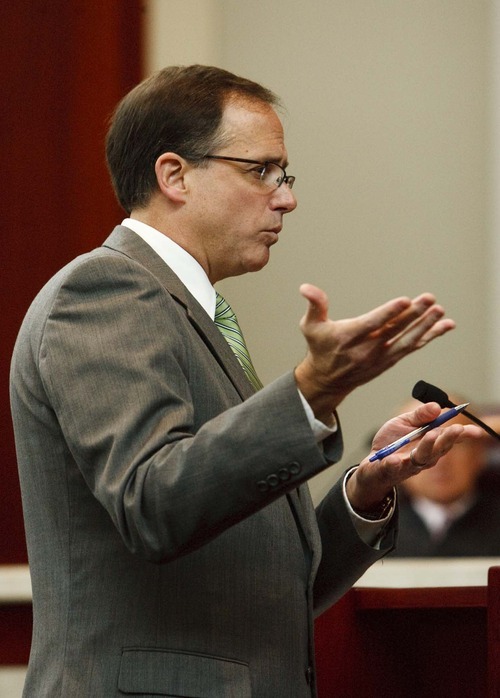This is an archived article that was published on sltrib.com in 2011, and information in the article may be outdated. It is provided only for personal research purposes and may not be reprinted.
A Florida man's court fight to gain custody of his daughter, given up for adoption after her January 2010 birth, may hinge on whether he is allowed to argue a state employee's delay in registering his paternity notice violated his due process rights.
The Utah Supreme Court is now considering whether Ramsey Shaud, of Crestview, Fla., adequately argued in a lower court that his constitutional rights were violated by the delay at the Office of Vital Records and Statistics, caused in part by the state's four-day workweek and a legal holiday.
Shaud is the latest in a string of unmarried fathers from across the country to make his way to Utah in hopes of undoing an adoption — in this case, of a child referred to as "Baby Girl T." It will likely be months before the justices issue their opinion.
Shaud, now 24, had a casual relationship with Shasta B. Tew, also of Crestview, Fla., in 2009 and learned in June that Tew was pregnant and due in February 2010. Shaud told Tew and her mother he was fully capable of and willing to raise the child; he objected when Tew said she planned to have an abortion and when she backed out of the procedure and wanted to place the baby for adoption. Shaud filed with Florida's Putative Father Registry a month after learning of the pregnancy and later refused to sign off on adoption paperwork. In mid-December, Shaud received a handwritten note from Tew informing him she planned to travel to Arizona and Utah for the holidays and would "stay on in Utah for awhile."
Shaud immediately filed with Arizona's Putative Father Registry but said he was unable to locate information on government websites about what he needed to do to protect his rights in Utah. He hired a Utah attorney, who on Jan. 12, 2010, filed a paternity petition and faxed a notice of paternity to the state records office.
Daniel Drage, Shaud's attorney, also mailed a notice that day to the records office, which marked it received on Jan. 14. With the baby due in February, Shaud thought he was acting in plenty of time.
But Tew gave premature birth to a baby girl on Jan. 15.
The records office happened to be closed that day, a Friday, because of the state's four-day work schedule, and was closed the following Monday, which was a federal holiday. A clerk filed Shaud's paternity notice on Jan. 20, a day after Tew relinquished her rights and the infant was placed with adoptive parents through A Act of Love Adoptions.
A trial court judge ruled Shaud had failed to met a statutory deadline and had no right to object to the adoption. Drage argued the lower court improperly refused to let Shaud submit evidence detailing his filings.
"In this case, Mr. Shaud ran this race, ran through the maze and initiated his paternity proceedings and filed his notice prior to the birth of his child," his appeal states. But, the office failed to act in a timely manner, a failure that was "unquestionably the result of gross negligence.
"To bar Mr. Shaud from asserting his biological right to his daughter in these circumstances contravenes all notions of fairness and due process," Shaud's petition states.
But the justices questioned Drage about whether he had properly preserved a constitutional claim by raising it in the trial court proceedings, something Drage maintained he did in oral arguments.
Larry S. Jenkins, the attorney representing the adoption agency, said it is "irrelevant" when Shaud sent his notice to the records office; what matters is when it was entered into the record, and that didn't happen until the birth mother had already consented to the adoption.
The Utah Legislature purposefully set the time of filing to coincide with when a claim is entered into the Putatitve Father Registry to further "important policy interests," Jenkins said in his court filing — namely, a clear-cut deadline that a birth mother, adoptive parents and adoption agencies could rely on and a "compelling interest in providing stable and permanent homes for adoptive children in a prompt manner."
Shaud also failed to submit a copy of his court-filed paternity petition to the records office, which Jenkins argues is required by Utah's adoption statute but Drage said is "discretionary."
By officially accepting a paternity notice, the records office is signing off on a filing as complete, with a verified paternity petition and no conflicting paternity claims, Jenkins said. Shaud is simply trying to shift blame for not filing his notice sooner to the records office.
Shaud, who traveled to Utah with his grandmother for Monday's hearing, tried to remain hopeful.
"I'm trying to be optimistic about it," Shaud said. But, "I really don't have any faith in the judicial system."











